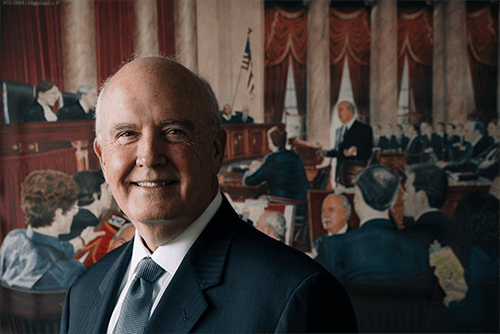A Proven Appeals Team In Maryland And Washington, D.C.
Appellate advocacy is a specialized area of practice that is unfamiliar to many trial lawyers. At RaquinMercer LLC, our attorneys possess the requisite experience to achieve the best possible outcomes for people who have suffered injustice in the criminal and civil courts.
Steve Mercer has more than 20 years of successful appellate experience, primarily in the Maryland state appellate courts but also in the District of Columbia Court of Appeals, the U.S. Court of Appeals for the Fourth Circuit, and the Supreme Court of the United States. Isabelle Raquin is an accomplished criminal trial attorney and oral advocate. She has argued cases on appeals before the Court of Special Appeals and the Court of Appeals in Maryland. They make a formidable appellate team, with Steve preparing briefs and Isabelle handling the oral arguments before the court or vice versa.
Most trial lawyers lack an understanding of the procedures of an appellate court or how doctrinal principles shape and define the contours of appellate review. At the same time, many appellate attorneys lack the experience of jury trials, which limits their insight into the trial process. Steve and Isabelle believe that combining the art of appellate advocacy and the art of trial advocacy has a mutually reinforcing and amplifying effect on the quality of representation they provide to their clients. Trial experience, in particular – mastering the art and psychology of telling a persuasive narrative – is an essential tool in appellate practice. Also, knowledge of the appellate process is a critical part of honing the questions to raise based on what went wrong during a trial.
Judge Bair, retired from the Circuit Court for Montgomery County, Maryland, Of Counsel at RaquinMercer brings 45 years of legal experience and 35 years of appellate practice. Judge Bair has argued over 150 cases before Maryland’s appellate courts and the United States Court of Appeals for the Fourth Circuit. He is a member of the United States Supreme Court bar and he has argued cases before the Supreme Court such as Maryland v. Pringle, 540 U.S. 366 (2003), a landmark Fourth Amendment case that he won nine to zero.
Judge Bair was the Solicitor General for the State of Maryland for criminal cases at the Attorney General’s Office from 2002 to 2004, where he represented the State in the United States Supreme Court and the Maryland Court of Appeals. He was Chief of the Criminal Appeals Division (1987-2002), where he focused on criminal appellate litigation in the Maryland appellate courts and the United States Supreme Court.
Judge Bair has argued cases for the State and for the Defense. He brought to the bench an extensive knowledge of appellate practice. During his tenure as an Associate Judge, Judge Bair was specially appointed to the Court of Special Appeals on six occasions, to sit as a member of a three-judge panel of that court. He authored twelve opinions, including two reported opinions.
Trial And Appellate Experience On Your Side
Our clients receive the best of both worlds, as we combine the trial acumen of Isabelle Raquin and the appellate experience of Steve Mercer. This powerful synergy allows us to quickly identify relevant evidence and build the strongest possible appellate case, as evidenced by our success in cases such as Brookman v. State.
Your Right To An Appeal
When you file an appeal, you’re asking a higher court to review the decision of a lower court and consider changing the ruling. Defendants who are convicted by a judge or jury have an automatic right to appeal the conviction. However, defendants who plead guilty must be granted permission by the appellate court to proceed with the appeals process.
The Criminal Appeals Process
After your original court case, you ordinarily have 30 days to file a notice of appeal with the court. Follow this time-sensitive requirement or your appeal could be dismissed.
Once a notice is filed, your attorney will request a transcript of the proceedings and organize the record of the trial. At this stage, the attorney must closely evaluate what happened at trial to identify the best questions to raise on appeal. The attorney researches and writes a formal appellate brief to persuade the appellate court of the errors at trial that prejudiced the client. The brief is filed with the appellate court, and government prepares a response in opposition. Typically, a reply to this response is then prepared.
In state appellate practice, the default is for the court to hear the appellate argument. This is an opportunity for your attorney to have a discussion with the panel of appellate judges about the issues and errors in your case. In federal appellate practice, oral arguments are at the request for the court. The court then reaches a decision and issues a written opinion.
The appeals process can be long and arduous, often taking many months or even years to complete. Having a knowledgeable appeals attorney by your side is the key to successfully navigating the process and increasing the chance of a desirable outcome in your criminal or civil case.
Contact Our Appellate Lawyers Today
If you’re interested in filing an appeal, don’t hesitate to contact our appeals attorney. The sooner you reach out, the better. We’ll tell you the requirements for filing an appeal and help you do so. We’ll also offer our professional, straightforward advice regarding your case. Call 301-750-9702 or contact us online to schedule a consultation.

